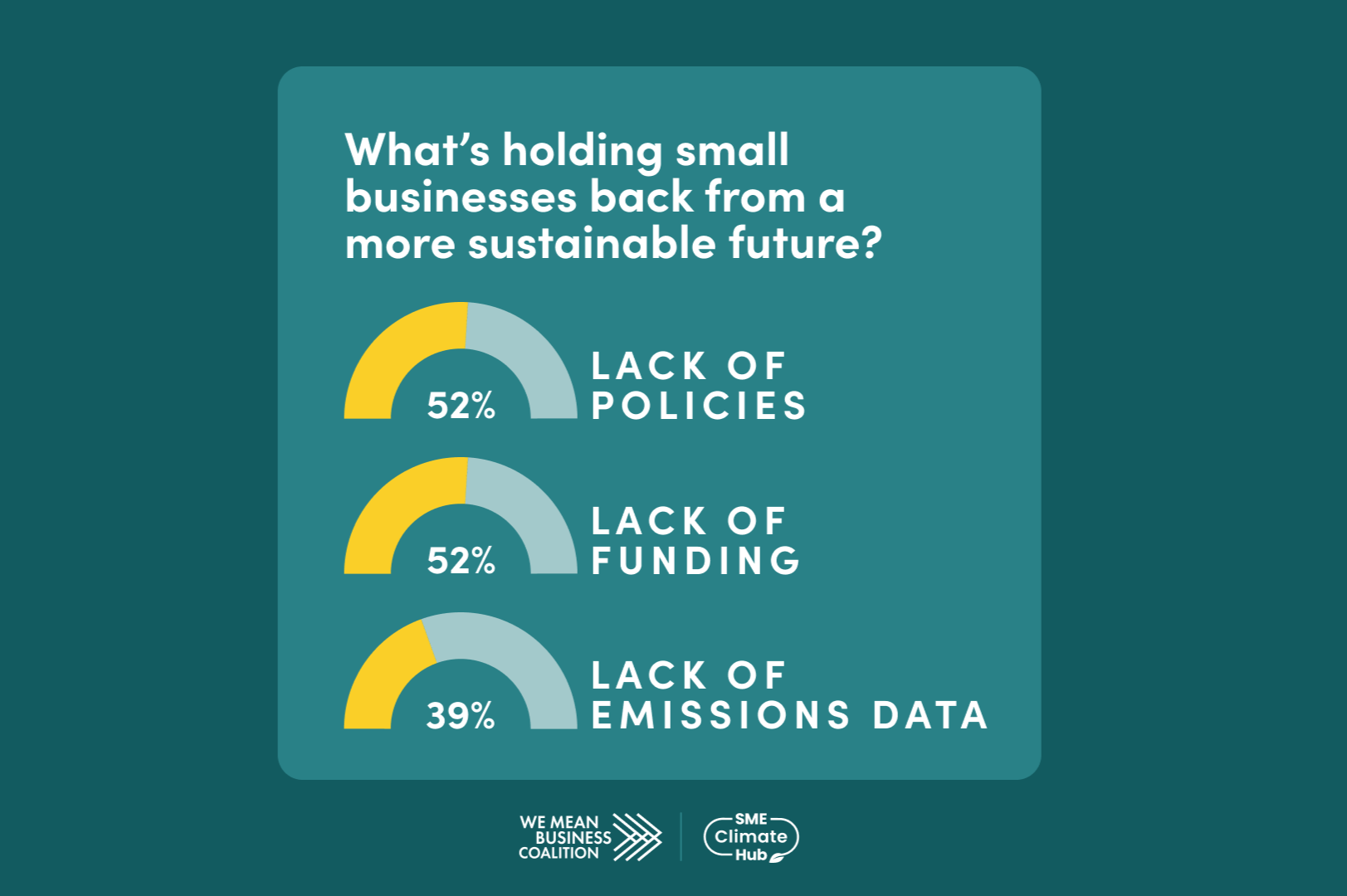There’s no net-zero without SMEs – but they need more support
This article first appeared in Edie.
Small and medium-sized companies are the backbone of the economy, making up 90% of businesses globally, employing 70% of the world’s workforce and contributing over 50% of global GDP. Given their agility and potential for innovation in supply chains, and wide sectoral spread, these businesses with under 500 employees are vital to global efforts to deliver the net zero transition.
Yet, with a more concentrated customer base and staff, and localized supply chains, along with more precarious balance sheets, SMEs are more vulnerable to the impacts of severe weather events caused by climate change, compared to larger corporations. This means that without the right support, SMEs often find themselves stuck between a rock and a hard place in terms of climate action.
There are estimated to be around 400 million SMEs globally. In the EU, SMEs account for two-thirds of private sector jobs and contribute to more than half of the total added value created by businesses. Meanwhile, the US economy boasts around 30 million SMEs, which have accounted for nearly two-thirds of net new private sector jobs in recent decades.
A significant percentage of these companies will have a role to play in the clean energy transition, providing the products and workers needed to move the world to the new economy. And SMEs are increasingly motivated to act on climate change. According to the 2024 SME Climate Hub annual survey developed by We Mean Business Coalition, 44% of SMEs saw reducing emissions as a higher priority this year compared to last year, and a further 53% maintained reducing emissions at the same priority level as last year.
The survey also shows that surveyed SMEs taking climate action are reaping early mover rewards. Close to two-thirds (62%) of respondents said that as a result of reducing their emissions, they had enhanced their business reputation, while more than half (53%) said such actions had helped them differentiate their business from competitors. Forty percent of respondents linked climate action to branding benefits and 30% said they had won new customers because of the steps they had taken to reduce their emissions.
Many small businesses understand the importance of reducing their emissions and the benefits they can accrue from doing so. For example, 52% of SMEs are motivated by the cost savings and return on investment from their climate action. Meanwhile, they are under increasing pressure to take action. Compared to last year’s survey data, SMEs said they were facing an 11% increase in pressure to take climate action from shareholders, investors and customers as governments and global supply chain leaders set their own net zero goals. Executive support for climate action in small businesses has grown to match this uptick in stakeholder engagement, the survey showed.
However, respondents were also clear that they face many barriers to taking climate action. The survey shows small business leaders running up against a lack of policies and government-sponsored benefits, insufficient funding, a shortage of data about current emissions, a lack of time, and a lack of skills and knowledge.
Indeed, respondents to the survey highlighted five areas of aid that they said would help them reduce emissions. These included financial support; government incentives, including tax benefits, low-interest loans, or technical assistance programs; tools for measuring and monitoring emissions; guidance for implementing emissions reduction tactics; and consistent reporting protocol across customers and governments.
This need for support to allow SMEs to play their full role in the energy transition is backed by many other pieces of research.
European industry group SME United has said that ‘a fair and just transition must include proper and structured consultation of SME organizations at all levels’. This can happen, it suggests, through National Recovery and Resilience Plans and National Energy and Climate Plans and through “green and just transition councils at [the] regional and local level”. The group has also called for planning stability and “targeted and effective support,” including ensuring that SMEs can easily access “sustainable and green finance”.
Meanwhile, the US government insists the Inflation Reduction Act, with its $369 billion of investment in climate and clean energy, is key to boosting SMEs by driving innovation and creating market demand for technologies required to meet climate goals, like solar kits, heat pumps, water heaters, electric vehicle charging stations and low carbon construction materials.
SMEs are starting to realize that the energy transition is a way to cut costs and a good return on investment. It also creates significant opportunities for companies to differentiate themselves from competitors, improving their reputation and retaining or adding new clients. With the right technical and financial support they will increase their confidence, skills and investment to deliver on their net zero transition.

 Go back
Go back






